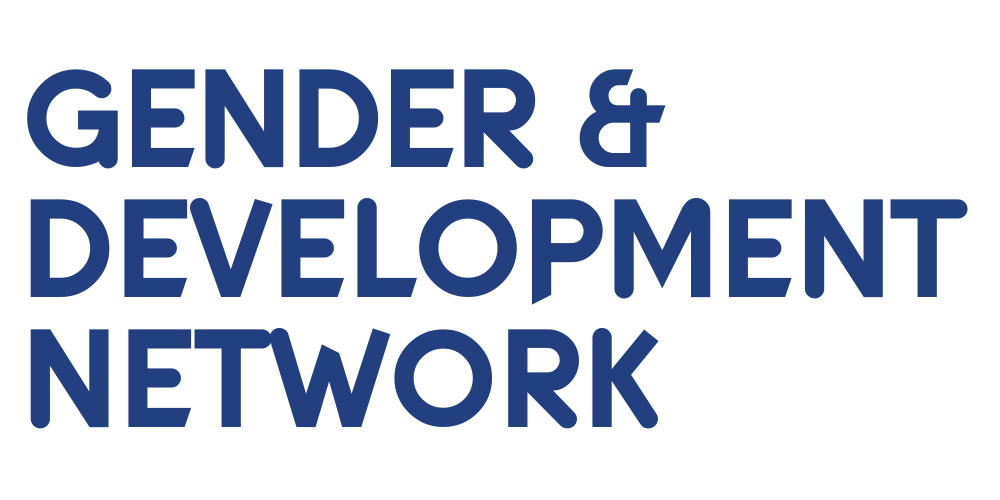Women's economic justice & feminist macroeconomic alternatives
Being able to generate a regular and independent source of income has a significant impact on a woman’s ability to make decisions and have control over her life.
Yet too often, women around the world are denied the opportunity to earn a decent living.
Barriers to women’s economic justice include constraints on time due to care work, social norms that limit women’s freedom outside the home, lack of access to finance to start a business, discriminatory policies at work, and the threat of violence or harassment in the workplace.
Gender equality will only be achieved when women have equal access to, and control over resources, and equal participation and influence in economic decision-making. Women’s economic empowerment means women can benefit from economic activities on terms which recognise the value of their contribution, respect their dignity and make it possible for them to negotiate a fair income.
GADN Resources
Explore GADN resources and learn more about women’s economic justice.
See GADN webinars for the latest information.
Feminist Reframing of Macro-level Economics (REFRAME) Project
In the REFRAME Project, GADN challenges the way in which high-level economic decisions about resources negatively affect women’s rights and gender equality around the world. The project focuses on:
Raising resources: tax, trade and debt
Government spending: austerity, public services, social protection
GADN Working Group
The Women’s Economic Justice Working Group provides a forum for GADN members and other like-minded organisations to build alliances and consensus on the structural nature of women’s economic inequality. The Group develops recommendations to influence the UK Government’s international policies.
More on the issue
Women’s economic empowerment won’t be achieved until governments fundamentally rethink their approach to economic policy. This means recognising the whole spectrum of work – paid and unpaid, inside and outside the home, formal and informal.
Crucially, governments and policy-makers must realise that economic growth alone will not bring about gender equality, and that a more nuanced approach to fostering growth, and redistributing its benefits, is needed. This will require, for example, creating good quality or ‘decent’ work for women, which guarantees basic conditions such as minimum wages and the right to organise. For the many women who are not in formal paid employment, universal social protection schemes that are not linked to employment contributions are particularly important.
Member resources
IMF and gender equality: operationalizing change (Bretton Woods Project, February 2019)
Pacific Forum on Women, Law, and Development, (Bretton Woods Project, 2018)
Four things to know about the purple economy (International Women’s Rights Action Watch Asia Pacific, Bretton Woods Project, 2018)
Between work and care: older women’s economic empowerment (Overseas Development Institute, November 2018)
Gender, livelihood capabilities and women’s economic empowerment: reviewing evidence over the life course (Overseas Development Institute, September 2018)
Unpaid care – why and how to invest: policy briefing for national governments (Oxfam, January 2018)
Seven reasons why feminists say NO to World Bank-IMF neoliberalism (Asia
The IMF and gender equality: a compendium of feminist macroeconomic critiques (Bretton Woods Project, October 2017)
An economy that works for women: achieving women’s economic empowerment in an increasingly unequal world (Oxfam, March 2017)
Gender-Just Macroeconomics; Engaging the IMF and World Bank, Bretton Woods Project (2016)
The IMF and Gender; A Critical Analysis, Bretton Woods Project (2016)
Close the Gap! The cost of inequality in women’s work, ActionAid (2015)
Even it Up: Time to End Extreme Inequality, Oxfam International (2014)
Realising the Vision for Gender Justice: What needs to change in 2015, Christian Aid (2015)
Taxing men and women: why gender is crucial for a fair tax system , Christian Aid (2014)
Southern-based organisations’ resources
Watering the leaves, starving the roots (AWID, 2013)
The Power of Investing in Women’s Rights and Empowerment (AWID, July 2011)
Other resources
Transforming women's work: policies for an inclusive economic agenda, Solidarity Center, AFL-CIO, Rutgers Center for Women's Global Leadership (2016)
Gender at Work, World Bank (2014)
Putting Gender Back in the Picture: Rethinking Women’s Economic Empowerment, Esplen, E. (2007)
Report of the Working Group on eliminating discrimination against women in economic and social life with a focus on economic crisis The United Nations Human Rights Council (2014)
Voice and Agency Empowering women and girls for shared prosperity, World Bank Group (2014)
Women’s economic empowerment, OECD (2012)
Women’s economic empowerment and inclusive growth: labour markets and enterprise development, Kabeer, N. (2012)
Women’s empowerment: what works and why?, Cornwall, A. (2014)
Other GADN Issues
📷 GADN joins a FEMNET panel at the Commission on the Status of Women in New York (March 2019)


